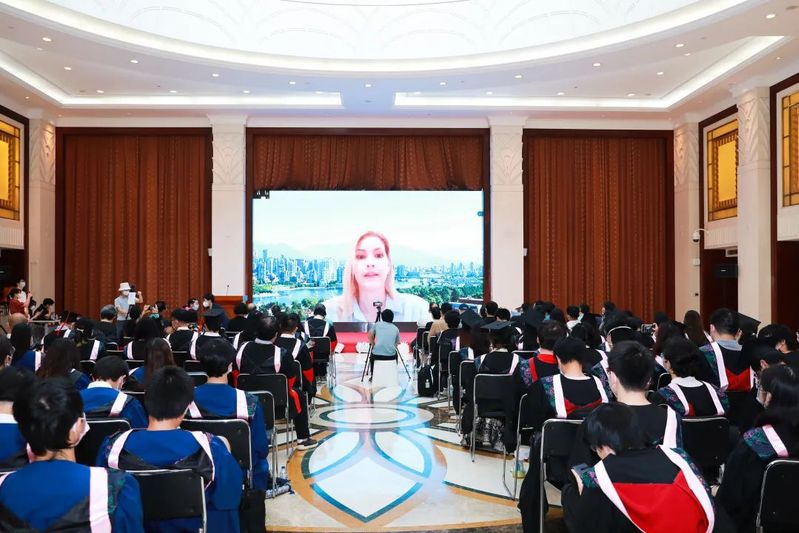

I am honored to address professors, staff, and students and to congratulate my fellow graduates of the EMA program in Chinese Philosophy and Culture.
Neo-Confucian Wang Yangming tells us, “Only those who are petty persons regard themselves as separate from others solely because of the space between their bodies.” The two years we spent together, although divided by oceans and time zones, reveals to me the truth in these words. Never before have I developed such a deep appreciation and love for individuals whom I have never met in person. The final moments of our online defense meeting were surprisingly sentimental. Everyone lingered, reluctant to leave the meeting room for the last time.
Confucius stated that “Men are close to one another by nature. They diverge as a result of repeated practice” (Analects 17.2), to which I’ll offer an addendum. I think our class demonstrates the potential for human beings to reunite through common practice. As international students from Europe, North America, and South America with bachelor’s degrees in a variety of fields, we came to this program already having been divided by our past life experiences, social customs, and academic perspectives. But thanks to our professors who transmitted their knowledge to us and inspired us with their dedication, and thanks to our tutors who unlocked the classics for us, we could not help but integrate the humanistic ideals of Chinese philosophy into our thinking and practice. As Confucius rhetorically asks, “Is it not a pleasure, having learned something, to try it out at due intervals?” (Analects 1.1). Our earnest independent thesis research shows that we have begun to embody the spirit of Chinese philosophy, to embody the spirit of the scholar – the one who endeavors to attend to the knowledge about humanity within his own heart. Having been divided by practice, we have become increasingly reunited not only by our academic interests but by the quality of our human hearts.
To acknowledge the significance of our success today is to acknowledge the legacy we gratefully receive from our professors and to acknowledge the great possibilities that await us. We are prepared not only to become successful scholars in this exciting field but also for success in life and in our most important relationships. Embarking on this journey during a time of vast uncertainty took immense courage, commitment, and trust – capacities that will serve us in every endeavor. Seeing our coursework through, despite the physical absence of everything that normally holds us accountable – our classmates, professors, and the university environment – has given us incredible independence and integrity. Engaging with our mentors and peers in mutual learning made us engage openly with our biases, mistaken beliefs, and shortcomings in front of others, and consequently nurtured our capacity for empathy.
Even if we are separated by physical distance, and though we began this journey separated by practice, today we are reunified in purpose and potential. The inheritance of Confucianism, Daoism, Mohism, Legalism, Buddhism, and Neo-Confucianism has offered us a rich philosophical and ethical vocabulary that will shape our future decisions, allow us to become innovative thought leaders, and open new philosophical worlds for humanity.
Thank you.